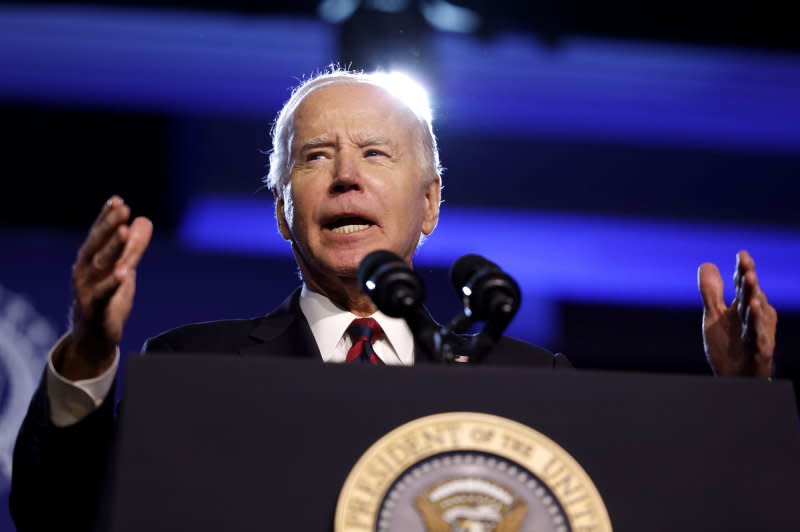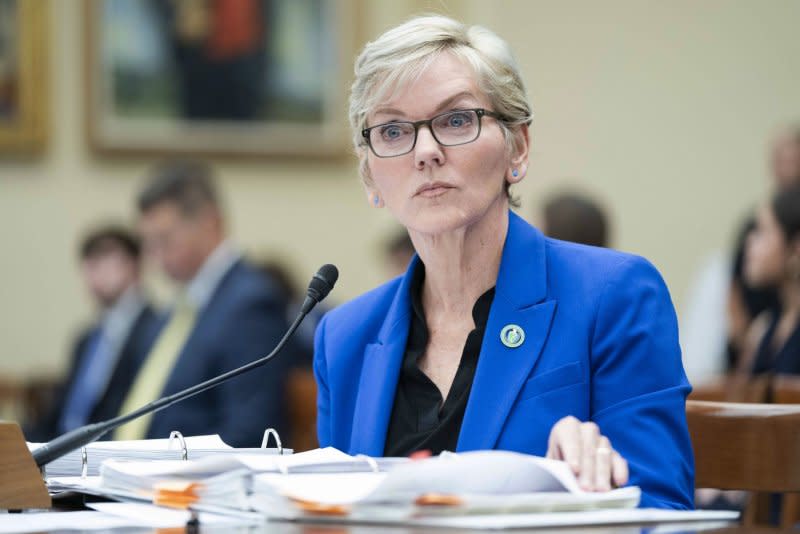Biden administration pauses new LNG exports to reassess climate impact

Jan. 26 (UPI) -- The Biden administration Friday announced a temporary pause on approving new liquified natural gas exports to non-Free Trade Agreement countries to reassess environment and economic impacts.
The pause will be in effect until the Department of Energy can update the underlying analyses for LNG export authorizations.
Citing environmental concerns, President Joe Biden said in a statement, "During this period, we will take a hard look at the impacts of LNG exports on energy costs, America's energy security and our environment. This pause on new LNG approvals sees the climate crisis for what it is: the existential threat of our time."
The pause on pending LNG export decisions makes an exception for "unanticipated and immediate national security emergencies."
Energy Secretary Jennifer Granholm told reporters Thursday, "As our exports increase, we must review export applications using the most comprehensive, up-to-date analysis of the economic, environmental and national security considerations."

A letter to Granholm signed by the American Petroleum Institute and 31 other industry groups said curbing LNG export approvals would hurt American jobs and undermine efforts to reduce greenhouse gas emissions, among other effects.
"Our nation's abundant supply of natural gas is an impactful geopolitical tool, helping insulate American consumers from increasing global instability while advancing American national interests and ensuring the energy security of key U.S. allies," they wrote.
According to a White House fact sheet, the DOE economic and environmental analyses for LNG exports are about 5 years old and no longer adequately account for the latest assessment of greenhouse gas emissions or potential energy cost increases for consumers and manufacturers.
"Today, we have an evolving understanding of the market need for LNG, the long-term supply of LNG, and the perilous impacts of methane on our planet," the fact sheet said. "We also must adequately guard against risks to the health of our communities, especially frontline communities in the United States who disproportionately shoulder the burden of pollution from new export facilities."
Sierra Club Executive Director Ben Jealous hailed the decision to pause new LNG exports.
"This decision is a major win for communities and advocates that have long spoken out about the dangers of LNG and makes it clear that the Biden administration is listening to the calls to break America's reliance on dirty fossil fuels and secure a livable future for us all," Jealous said in a statement. "Strong leadership, that rejects fossil fuel industry fear-mongering, is our best bet to protect communities and ensure energy is affordable."
Biden's statement said the administration has taken significant action on climate change, but more is needed.
The United States is the number one exporter of LNG worldwide, according to the White House, and exports are expected to double by the end of the decade.
The White House said the pause on new export decisions won't impact the ability of the United States to "continue supplying LNG to our allies in the near-term."
Roughly half of U.S. LNG exports last year went to Europe.

